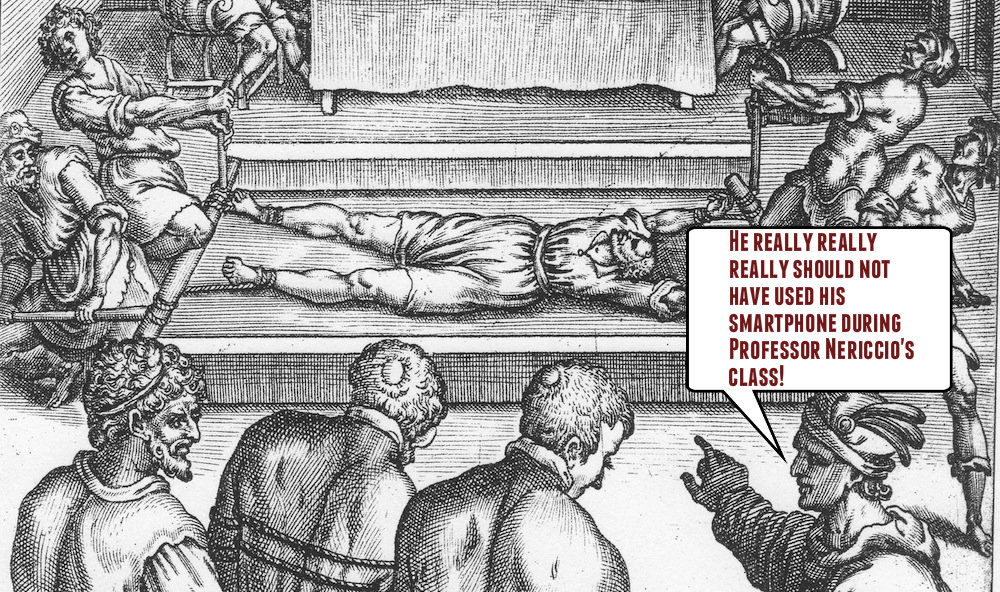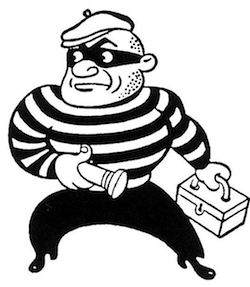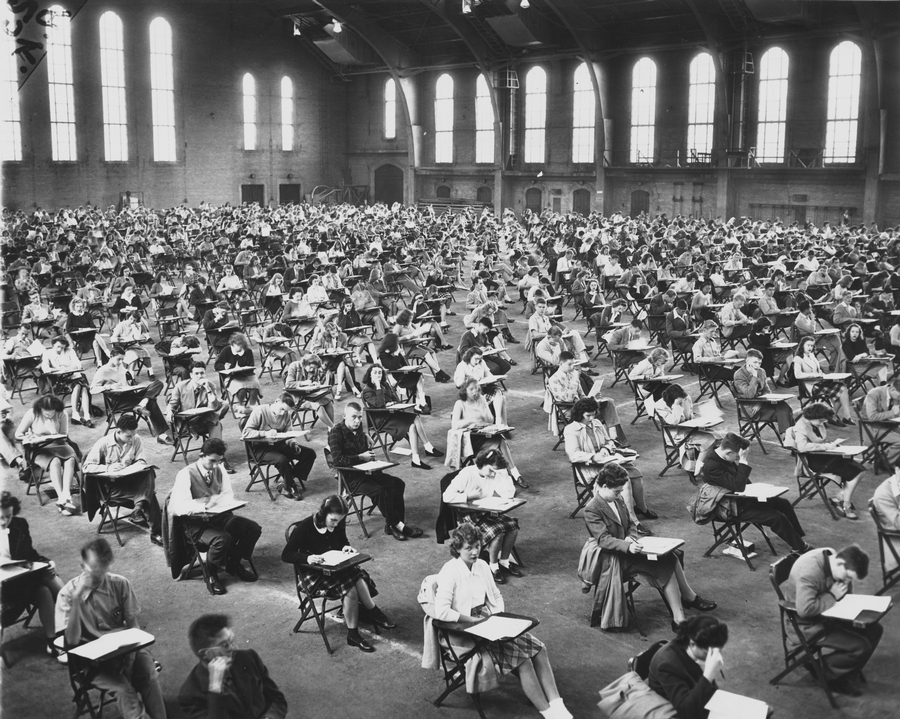|
PASSPORT
 his section of your
online syllabus documents how your work will be evaluated
Spring 2020. Here you will find all the little gates,
cages, locks, statutes, ordinances, edicts, and formulas
that allow our innovative American-Lit-obsessed literary
collective to thrive. Let me underscore that you
have absolute
intellectual freedom in our seminar, BUT to receive
these awesome rights, you must also follow the somewhat
reasonable responsibilities outlined on this page. his section of your
online syllabus documents how your work will be evaluated
Spring 2020. Here you will find all the little gates,
cages, locks, statutes, ordinances, edicts, and formulas
that allow our innovative American-Lit-obsessed literary
collective to thrive. Let me underscore that you
have absolute
intellectual freedom in our seminar, BUT to receive
these awesome rights, you must also follow the somewhat
reasonable responsibilities outlined on this page. After all, we want to have a great time, to be the best literature/cultural studies class on the West Coast, even! Take that USC! Eat my dust Stanford! But to do that, we need room for intellectual play--a safe asylum within which to forge our sedictive, American literature-filled wanderlust. So, then, read these laws carefully and thoroughly, so when you walk into SSW 2501, aka, "the Den of American Nightmares," you will know what to do and what not to do! OFFICE HOURS
PASSPORT RULE 1
BOOKS_BOOKS_BOOKS
BUY THE BOOKS AND READ THEM--AND DON'T COME TO CLASS WITHOUT YOUR BOOK! Though we very much adore living in the 21st century, we will use ANALOG, printed books in this class. Please do not come up and ask me if you can use a Kindle or your laptop or your Smartphone--see rules 3 and 4 below. PASSPORT
RULE 2 READ_READ_READ!
When
you enter this room for class you will have completed the reading that appears
on the
day-to-day class calendar! Please
note the word "finished" (not "started," not
"skimmed," not "glanced," and most decidedly NOT "I
read the Cliffs/Sparks/Shmoop Notes online!) Coming
to a university literature/film/cultural studies class
without doing
the reading is like a gardener trying to raise roses
without getting her/his hands filthy with shit, a
surgeon trying to operate without a scalpel, a fireman
without her/his ax, a prostitute without, er, well, I
better stop there. Do the readings.
Do
them twice if you can MAKE the time! You ARE
English and Comparative Literature majors and minors,
right!?
Think twice about joining us if you have not finished
the readings--the quality of our class depends upon
your dedicated work and your relentless and
independent curiosity. Without your periodic
intellectual donations, the class is likely to evolve
into a boring, even painful waste of time. PASSPORT RULE 3
PUT THE ELECTRIC
MONSTERS TO SLEEP!
Have
you noticed how anytime a student uses a laptop in a
classroom there is a "cone of
distraction" alongside and behind the student
using a computer? This
is usually due to said student surfing the web via
wi-fi perusing erotic delights or god knows what. I
was recently at a cool (ok, it was slightly boring, I
confess) lecture by a noted writer--as I tried to
listen to her, in front of me, a diverted student
(attending the lecture, no doubt, for extra-credit)
was perusing sites like these
(nsfw or school). So,
laptops are GREAT for entering your notes AFTER
class, but they will not be allowed in our Den of
Seductive American Nightmares. If you have an issue with this, schedule a
meeting with me during office hours the first week
of class. PASSPORT RULE 4
PARALYZE THE SMARTPHONE!
PASSPORT
RULE 5 Charlie-Delta_Thief
Other
Major Course Requirements
QUIZZES, ATTENDANCE, and cineTREKS©...
Missing
class, you miss, as well, the whole point of the
adventure. So please bypass no more than SIX classes during the
semester--you are responsible for any work/notes you
miss when you are absent and can PRESUME
that what you missed that day was important! If you miss MORE than SIX
classes during the term your grade will decay in an
ugly way fast. EXAMPLES: your hard-earned A- will
morph into a B-; your "gentleman's C" will appear on
the webportal as a "D," etc. etc. Ditching this class
too often will be as fun as a case of flesh-eating
virus. During the
semester, you can expect several In-class
Panic-Inducing Challenges otherwise known as CHECK-YOU-DID-THE-READING QUIZZES. You
can expect these miserable quizzes from time to
time, the number of quizzes depending on how many
of you are nostalgic for high school. In other
words, if everyone acts like a talented university
student, we will enjoy FEW if any quizzes during
our semester. Also to be expected? cineTREKS™! What are cineTREKS™? These are
extra-curricular activities--some on campus,
others in the greater San Diego area that are
related to our adventures in class. You might be wondering if
you can receive any second chances in this class on
the off-chance you miss a quiz, blow an assignment, or
generally screwup altogether? Luckily, your eccentric Professor is a recovering Catholic, and believes in the wonders of absolution--from time to time we will have out-of-class cineTREK© assignments, aka EXTRA-CREDIT OPPORTUNITIES; these can be used to atone for an absence, for a missed quiz, or for some other class-impacting catastrophe you may experience during the term. DIGITAL/VIRTUAL CONTRIBUTIONS
You can also
contribute to our own instagram
hashtag,
which goes by the catchy, if difficult to type, #seductiveamericannightmares. If Facebook,
Tumblr, and Instagram remain alien to your
consciousness, you can send your suggested
links/images/videos to me via email to memo@sdsu.edu;
I don’t promise that I will post ALL of your materials
but I will try, however, to see that some of them make
their way to the fabulous internets. DO NOT CONFUSE YOUR EXTRA-CREDIT, cineTREKS™ with these FIVE postings! What you are expected to share via social media are things you run across that relate to our class experiences--you do not HAVE TO WRITE a long essay with your postings... a couple of pointed, pithy, well-crafted sentences will do, enough to give me and your classmates a sense of a connection to ideas developed during the semester in our class. ESSAY You will be asked
to write ONE 8-10 page essay (also know as THE
SEDUCTIVE AMERICAN IMAGINATION CHALLENGE) during the
course of the term. Please note that you will never be
compelled to write about something you absolutely
hate. Though I will provide you with a list of
prompts, please feel free to see me at any time over
the course of the semester during office hours to
pitch/brainstorm essay ideas. FINAL EXAMINATION There
will be a final In-class Imagination Challenge (aka, the FINAL EXAM) on the
last regularly scheduled day of class: Tuesday, May 5,
2020 at 9:30 am in SSW 2501. Your final is
absolutely comprehensive; it assumes you have read all
the books and screened all the movies that are part of
our required work. |
 The Fine Print from the Suits @ SDSU and the CSU! 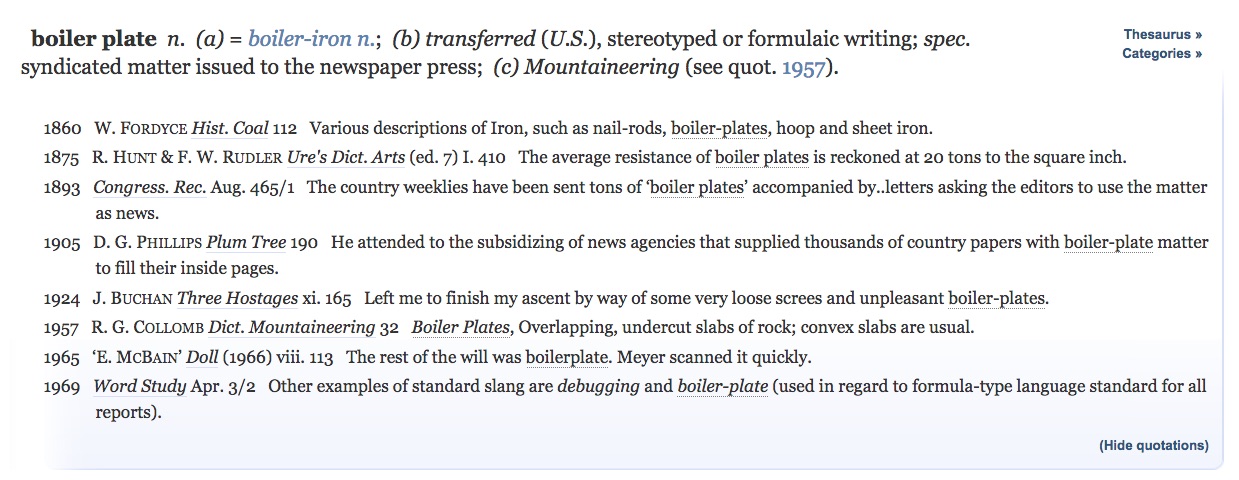 Class
Days: T/TH Class
Times: 9:30-10:45am Class
Location: SSW 2501 Mode of
Delivery: lecture,
discussion Instructor:
Dr. William A. Nericcio Phone:
619-594-1524 Email:
bnericci@sdsu.edu Office
location:AL
273 Office
hours: T/TH 11-12:15 You will
leave the class having mastered an understanding of
American literary history from the Civil War to the
present; you will be introduced to contemporary
literary criticism, cultural studies, and critical
theory—additionally you will master an understanding
of the relationship between American history and
American literature. Accommodations: If you are a student with a
disability and are in need of accommodations for this
class, please contact Student Ability Success Center
at (619) 594-6473 as soon as possible.
Please know accommodations are not retroactive,
and I cannot provide accommodations based upon
disability until I have received an accommodation
letter from Student Ability Success Center. Student Privacy and Intellectual Property: The Family Educational Rights and
Privacy Act (FERPA) mandates the protection
of student information, including contact information,
grades, and graded assignments. I will use our custom
webpage
to communicate with you, and I will not post grades or
leave graded assignments in
public places. Students will be notified at the time
of an assignment if copies of student work will be
retained beyond the end of the semester or used as
examples for future students or the wider public.
Students maintain intellectual property rights to work
products they create as part of this course unless
they are formally notified otherwise. Religious
observances: According to the University
Policy File, students should notify the instructors of
affected courses of planned absences for religious
observances by the end of the second week of classes. Academic
Honesty: The University adheres to a
strict policy
prohibiting cheating and plagiarism.
Examples of academic dishonesty include but are not
limited to: ●
copying, in
part or in whole, from another's test or other
examination; ●
obtaining copies
of a test, an examination, or other course material ●
collaborating with
another or others in work to be presented without the
permission of the instructor; ●
falsifying
records, laboratory work, or other course data; ●
submitting work
previously presented in another course, if contrary to
the rules of the course; ●
altering or
interfering with grading procedures; ●
assisting another
student in any of the above; ●
using sources
verbatim or paraphrasing without giving proper
attribution (this can include phrases, sentences,
paragraphs and/or pages of work); ●
copying and
pasting work from an online or offline source directly
and calling it your own; ●
using
information you find from an online or offline source
without giving the author credit; ●
replacing words
or phrases from another source and inserting your own
words or phrases. The
California State University system requires
instructors to report all instances of academic
misconduct to the Center for Student Rights and
Responsibilities. Academic dishonesty will result in
disciplinary review by the University and may lead to
probation, suspension, or expulsion.
Instructors may also, at their discretion,
penalize student grades on any assignment or
assessment discovered to have
been produced in an academically dishonest
manner. Resources
for students: A complete list of all
academic support services--including the Writing
Center and Math
Learning Center--is
available on the Student Affairs’ Academic
Success
website. Counseling
and Psychological Services
(619-594-5220) offers
confidential counseling services by licensed
therapists; you can Live Chat with a counselor at http://go.sdsu.edu/student_affairs/cps/therapist-consultation.aspx between
4:00pm and 10:00pm, or call San Diego Access and
Crisis 24-hour Hotline at (888) 724-7240. Classroom
Conduct Standards: SDSU students are expected to
abide by the terms of the Student Conduct Code in
classrooms and other instructional settings. Prohibited conduct includes: ●
Willful,
material and substantial disruption or obstruction of
a University-related activity, or any on-campus
activity. ●
Participating
in an activity that substantially and materially
disrupts the normal operations of the University, or
infringes on the rights of members of the University
community. ●
Unauthorized
recording, dissemination, or publication (including on
websites or social media) of lectures or other course
materials. ●
Conduct
that threatens or endangers the health or safety of
any person within or related to the University
community, including
Violation
of these standards will result in referral to
appropriate campus authorities. Medical-related
absences: Students
are instructed to contact their
professor/instructor/coach in the event they need to
miss class, etc. due to an illness, injury or
emergency. All decisions
about the impact of an absence, as well as any
arrangements for making up work, rest with the
instructors. Student
Health Services (SHS)
does not provide medical excuses for short-term
absences due to illness or injury. When a
medical-related absence persists beyond five days, SHS
will work with students to provide appropriate
documentation. When a student is hospitalized or has a
serious, ongoing illness or injury, SHS will, at the
student's request and with the student’s consent,
communicate with the student’s instructors via the
Vice President for Student Affairs and may communicate
with the student’s Assistant Dean and/or the Student
Ability
Success Center.  Student Learning Outcomes, English 250B: American Literature After the Civil War Content
knowledge: English and Comparative Literature
majors will be exposed to and demonstrate a broad
knowledge of major and minor authors, major texts
and contexts and defining intellectual issues of
American literature, enriched by familiarity with
the same in other European and/ or non-European
literature and/ or cinematic traditions.
Writing:
Literature majors will write with clarity,
creativity, and persuasiveness. Cultural
Significance: Literature majors develop and
demonstrate an awareness of the significance of
literature and of literary form, and of the role
they play in the larger culture by being
conversant in debates concerning literature's
values as a creative endeavor. In addition,
Literature majors will come to understand the
role of literature as historical artifact--a
sort of talisman or DNA that carries within it
the collective memories of the American body
politic.
|
Last Rule! Have Fun! |
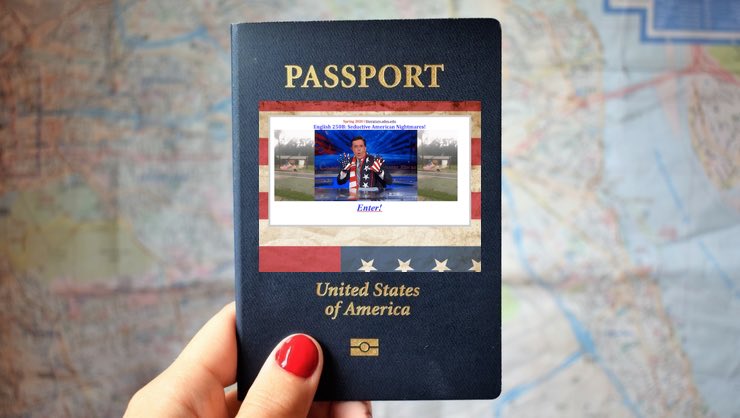
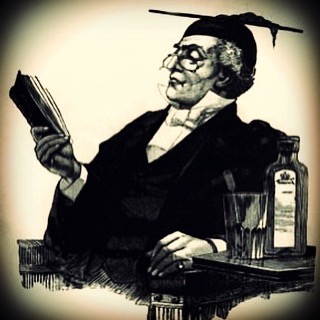

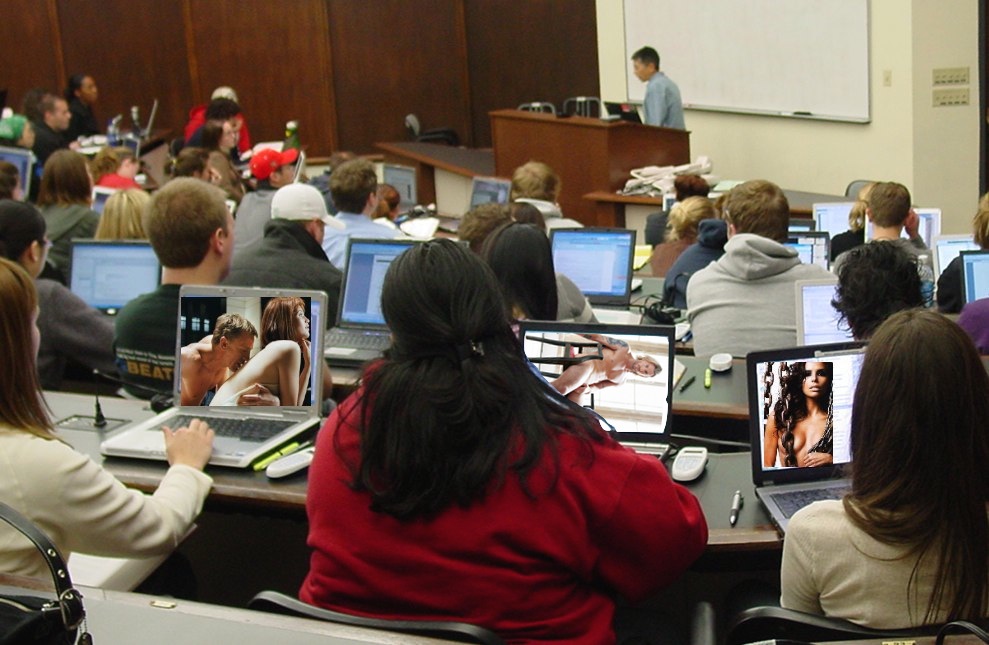
 Yes,
the trauma of that delayed text, yes, the horror of
that missed hook-up call, yes, the loss of the buzz of
that random Tinder swipe will no doubt doom you to
years and years on some psychoanalyst's couch, but we,
the rest of us, will gain some silence, a kind of
sanctuary without which ideas wither on the vine. We
are NOT joking about this unthinkable edict! Don't
end up like this former student from another Engl 250B
I taught back in the day:
Yes,
the trauma of that delayed text, yes, the horror of
that missed hook-up call, yes, the loss of the buzz of
that random Tinder swipe will no doubt doom you to
years and years on some psychoanalyst's couch, but we,
the rest of us, will gain some silence, a kind of
sanctuary without which ideas wither on the vine. We
are NOT joking about this unthinkable edict! Don't
end up like this former student from another Engl 250B
I taught back in the day: 